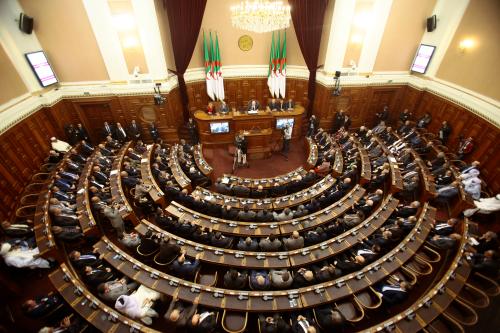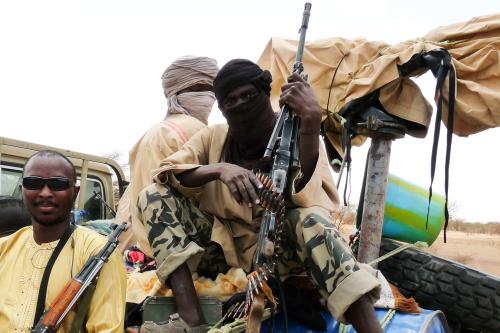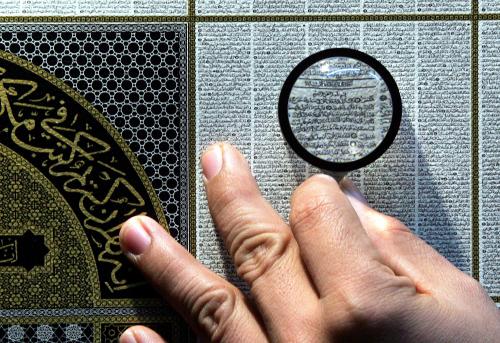Algeria is building the third-largest mosque in the world with the tallest minaret ever (see photo rendering here). The expensive project is a symbol of the country’s growing trend toward a less secular future.
The $1.5 billion dollar construction project will build a mosque with a surface area larger than any in Africa. Only the great mosques of Mecca and Medina in Saudi Arabia will be larger. The central prayer hall will be able to accommodate 120,000 worshippers. The minaret will be 265 meters tall, and a library with one million books will adjoin the complex. Construction is expected to be completed next year.
The Djamma al Djazair Mosque is a legacy project for President Abdul-Aziz Boutiflika, now in his fourth term. At 79, his health is very poor but he is the living embodiment of the revolutionary movement that freed Algeria from France. He led the Mali front in southern Algeria during the war of independence and served as Foreign Minister from 1963 to 1979. He was a leader of the non-aligned movement in the 1970s and of third world progressive politics.
In 1999, Boutiflika came out of retirement to be president and end the bitter, decade-old civil war that pitted the secular army-dominated regime against Islamic extremists. The conflict was an eerie harbinger of the Arab Spring in many ways, pitching an elected Islamist movement against a determined counter-revolution led by the deep state security apparatus. The army ruled behind the scenes and is known as Le Pouvoir for its hidden hand.
The People’s Democratic Republic of Algeria has become progressively more Islamic in the last few years. Bars have been shut down and women are more likely to wear modest clothing. Social mores are more conservative.
Algeria is the largest country, by landmass, in the Arab world and in Africa. It has the largest defense budget in Africa. With the drop in oil prices, it is using up its financial reserves and faces difficult economic times ahead. Social unrest is growing. Al-Qaida in the Islamic Maghreb remains a persistent irritation.
Boutiflika and his regime intend the mosque to be a center for moderate Islam. It is a symbol of the modern alternative to extremism, they say. Critics say it is a symbol of the decline in secularism and the principles of the revolutionary independence movement.
The Brookings Institution is committed to quality, independence, and impact.
We are supported by a diverse array of funders. In line with our values and policies, each Brookings publication represents the sole views of its author(s).







Commentary
Algeria’s massive mosque project: Alternative to extremism, or threat to secular values?
August 22, 2016